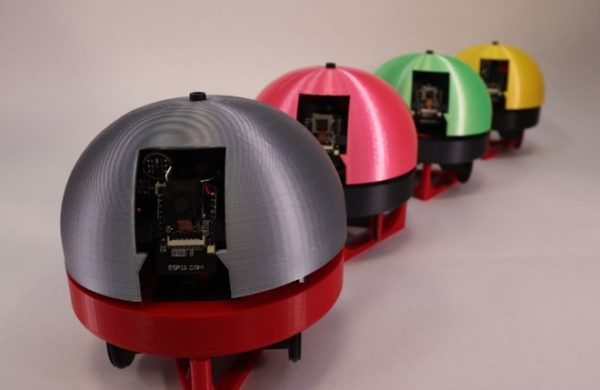Startups are born in any number of places: offices, homes, restaurants, planes, trains and automobiles. But in the case of Charles Simon’s Future AI, a DC-based AI company, it was born on a boat.
After sailing all around the world, Simon said that he was parked in the Annapolis, Maryland yacht base in 2018 when he began writing his company’s initial software. That eventually became a product called Brain Simulator, an open-source tool used by people the world over.
A few years later, in January 2022, Simon and cofounder Andre Slabber raised $2 million in January of 2022 to launch Future AI, an artificial intelligence company focused on general intelligence. In the time since, the company has grown to 20 employees, most of whom are developers, and is about to begin its beta launch.
General intelligence, according to Simon, is the sect of AI that focuses on emulating what neurons can do in a human brain. Most machine learning-concerned AI focuses on finding and analyzing data and correlations, which is useful to several industries, but the algorithms lack some of the basic human brain functions that we use every day.
“It doesn’t know the things that you and I take for granted,” Simon told Technical.ly. “We know that things exist in reality, we know that there is a reality or, at least, we assume there’s a reality because it sure looks like it. The machine learning direction is simply not targeted to go there.”
Those functions include things like knowing cause and effect, i.e. knowing your impact on reality and the future. Future AI is working on developing software that understands multi-sensory input as well as a data structure that can support any kind of information. It additionally is building an internal mental model, which replicates how human brains are generally aware of what’s around them, even if they’re not directly looking at something (need an example? Picture the wall that’s likely behind you without looking at it).
Its Sallie product, which just launched, attempts to make those brain functions a reality through AI. Sallie is a small pod that features a camera, computer, body and sensory technology to explore, talk, hear and touch things. Sallie, Simon emphasized, is still in the works; While she has the beginnings of those abilities, she largely exists as a toy or entertainment at the moment.
The software officially launched Friday, and Future AI is building a sign-up list for beta testing that is set to begin in the fourth quarter. He hopes to ramp up development in 2023, and ultimately expects to have a project with more complete general intelligence in four to five years.
Still, Simon stressed that the technology is still very new. It in no way interrupts the work of machine learning but instead adds new capabilities. And as a former electrical engineer who developed different machine learning-based software for neurological systems that he’d love to keep in the machine learning sphere, he would know.
“Artificial general intelligence has been a holy grail of computer science since the 1950s and when it exists, it will permeate and revolutionize all of computing,” Simon said.
Join the conversation!
Find news, events, jobs and people who share your interests on Technical.ly's open community Slack

DC daily roundup: Inside UMCP's new ethical AI project; HBCU founder excellence; a big VC shutters MoCo office

DC daily roundup: Esports at Maryland rec center; High schoolers' brain algorithm; Power data centers with coal?

DC daily roundup: Tyto Athene's cross-DMV deal; Spirit owner sells to Accenture; meet 2GI's new cohort


